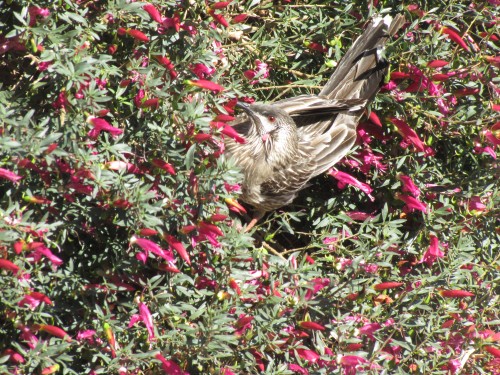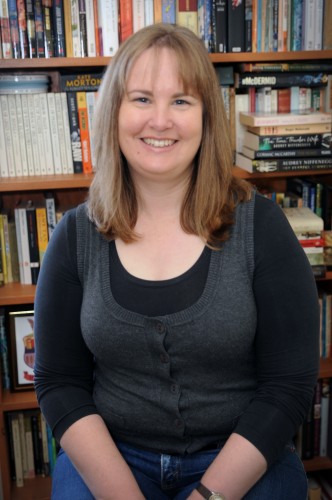Doing some weeding instead of writing
Gardening
Over recent days I have been spending more time out in the garden than at my computer attending to my writing. The spring weather has generally been wonderful and the spring rain a bit above average. The rain has come at about the right intervals to promote and maintain weed growth, hence the need for me to spend a great deal of time in the garden.
A big garden
Let me hasten to add that our garden is no ordinary quarter acre block common to many Australian homes. We have 5 acres (2 hectares) of land on the edge of the rural city where we live here in South Australia. It’s a challenge to look after and demands one keep on top of things.
Neglect
Sadly, the property has been quite neglected over the last 3 years while I completed my Master of Arts in Creative Writing. Now that I’ve graduated I can focus a little more on the extras – like gardening. One of the most time consuming tasks in recent weeks has been keeping on top of the weeds. We have planted many native Australian plants – like the one being enjoyed by one of our resident birds shown in the photo above. For these plants to really thrive I need to maintain a weed free zone around them. The weeds have a habit of taking over and choking out the growth.
Weeding my novel
This time last year I was doing a different kind of weeding. I was working very long hours – sometimes 10 to 12 hours a day – trying to get my novel into shape. The novel was my thesis paper for my degree and it had to be as near to perfect as possible. I spent many tiring hours weeding out all unnecessary words, phrases and even paragraphs. Every novel, short story, poem or article needs this treatment. Make every word count, weed out every lazy, useless and careless word.
You’ll stand a much better chance of getting your writing accepted for publication.
Good writing.
Rose’s travel jottings
The last few weeks have been very busy. Our daughter Rose, a teacher in one of our rural high schools, has taken up a teaching position in a school in Addis Ababa, Ethiopia for the rest of this year. My wife and I have been busy helping her to get ready for this big adventure as well as tidying her house and garden ready for a house sitter while she is away. It’s been an exhausting few weeks but now she is safely in her new environment and quickly adapting to life in a strange culture.
Good writing skills run in the family as she has reactivated her blog to help family and friends share in her adventure. Her site is called Rose’s Travel Jottings (click to access). I’d recommend a visit every few days, especially as she adds photos. And later in the year we are planning to visit her and then the three of us will travel several other countries together. Stayed tuned for our adventure too.
Good reading – and good writing.
My earliest attempts at writing
 From a very early age I wanted to be a writer. When I was about age 8 I was given a toy typewriter, probably the same as the one pictured above. This was one available in 1955, about when I was 8 years old. It wasn’t a true typewriter because it had a false keyboard. The letters were formed by turning the central dial to the required letter and then pressing the lever which then left an impression of the letter on the paper. It was a tedious process and operated in a similar way to early dial operated labelling machines (eg Dymo).
From a very early age I wanted to be a writer. When I was about age 8 I was given a toy typewriter, probably the same as the one pictured above. This was one available in 1955, about when I was 8 years old. It wasn’t a true typewriter because it had a false keyboard. The letters were formed by turning the central dial to the required letter and then pressing the lever which then left an impression of the letter on the paper. It was a tedious process and operated in a similar way to early dial operated labelling machines (eg Dymo).
Before receiving this wonderful boost to my writing career I would fill scraps of paper, old school exercise books, leftover brown wrapping paper and leftover pads with my writing. With my new “typewriter” came the need for typing paper and replacement ribbons. I graduated into writing stories, jokes and articles using my new toy, leaving spaces for hand drawn illustrations.
It wasn’t long before I discovered carbon paper in my father’s writing bureau, so multiple copies of my class newsletter were now possible. I soon had classmates paying for the privilege of subscribing to my periodical. My career was off and running.
Until Dad found out.
It seems that the father of a classmate complained that, in his opinion, my entrepreneurial endeavours were somehow illegal. Reluctantly I had to pay back the money, and my writing career came to a grinding halt. For next 40 years I dedicated myself to my second choice, teaching. Now in retirement I can finally pursue that early dream, one that was almost snuffed out by an obnoxious and totally meddlesome person.
I sometimes wonder what might have been.
Don’t let anyone steal your dream.
Good writing.


